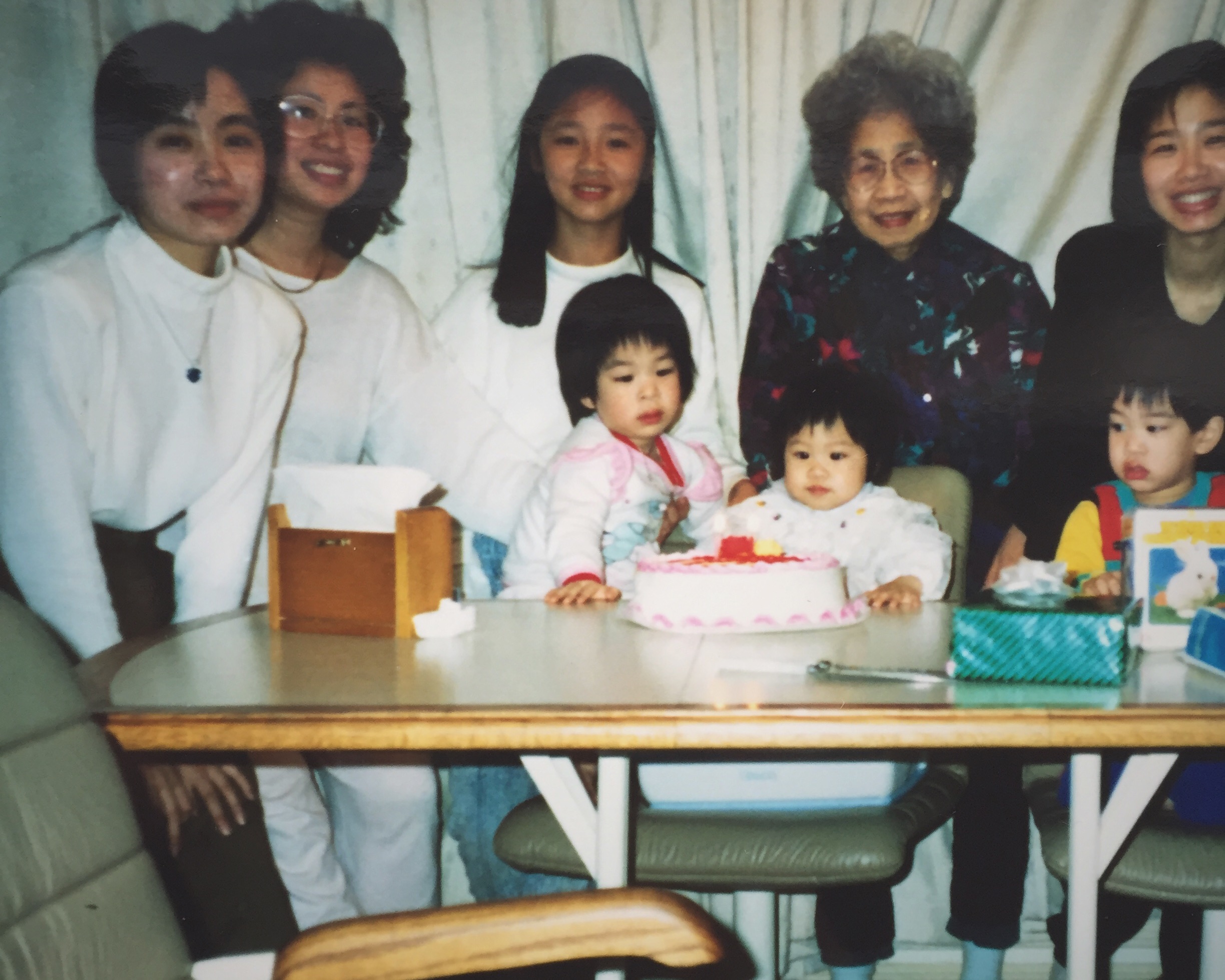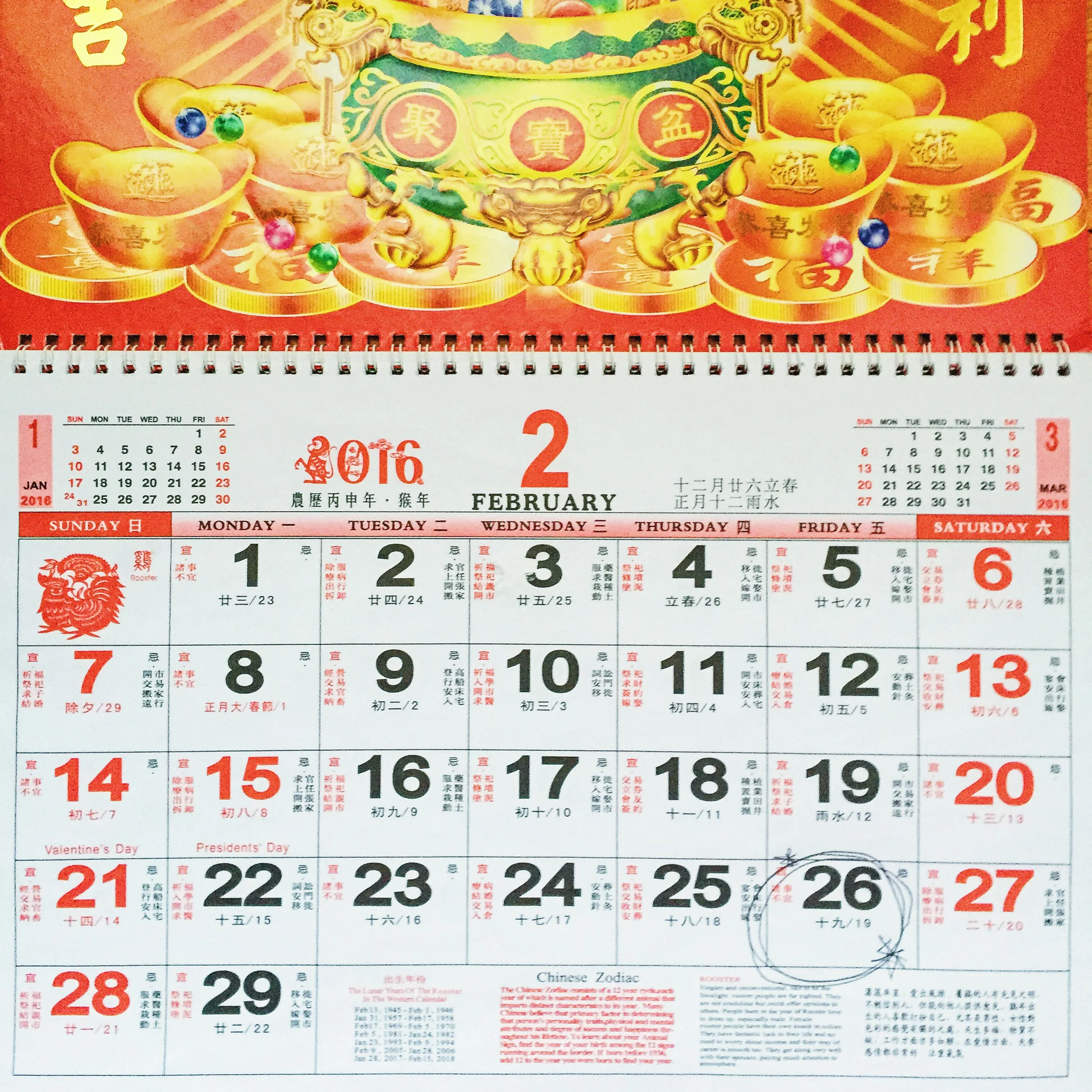Party Like It's Your Birthday...Again: Lunar vs. Gregorian Calendar
"It's your birthday today!" – Mom
"I'm making ma thai goa for you," Mom says, as I happened to be home for the occasion, which was really just a happy coincidence. Read any government issued document I have and it says "D.O.B. February 26." But that's how it is when you're from a culture that embraces both the Gregorian calendar (a.k.a the civil calendar, a.k.a. the one you know and love) and the lunar calendar.
Where the Gregorian calendar remains consistent, the lunar calendar changes year to year because it revolves around the moon cycle. This is why Chinese New Year's, Dongzhi, and every other celebration, including birthdays, fall on different dates each year. Usually I get a call from Mom informing me of mine because I never bothered to figure it out. But I guess as an almost, kind-of adult, it's high time I learn.
The Lunar calendar month begins on the day of the new moon and ends the day before the following new moon, which means on average one month will last 29.53 days. This means that in one year there are 12.36 months, so depending on the year there could be 12 or 13 months in a lunar year, in order to make up the extra percentage. Thus, following the lunar cycle, some months will have 29 days while others will have 30 days. But this also means that a 12-month lunar year will be 11 days shorter than a Gregorian year and a 13-month lunar year will be nine days longer. A 13-month lunar year typically occurs in similar fashion to a leap year, in that it's every few years depending on how far the moon has progressed since the start of the Chinese New Year. And you wonder why Asians are stereotypically good at math and science: it's because we've been calculating our calendar every year since the start of time, NBD.
Okay, so how do you figure out your Chinese birthday? First, it's good to keep in mind that Chinese New Year's Day will always be later than the Gregorian New Year's Day of January 1. So, although I was born in February, my Chinese birthday actually falls on Lunar January. Finding out the specific date is much more difficult because it's based on when the Chinese New Year began during the year you were born, so really your parents had to be keeping track—which, if your parents are Asian, they probably were.
Below each date you'll find Chinese characters with /# which indicates the day on the lunar year.
If you're genuinely curious about your Chinese birthday, well, it's called the internet. There are plenty of sites, albeit a bit clunky and reminiscent of '90s internet (but hey, the '90s are cool now!), that will provide you with your Chinese birthday and your age, because—guess what—you're actually a year older with the lunar calendar since the Chinese consider you to be one year old the moment you're born.
Twenty-something years ago, my Gregorian birth date of February 26 fell on the lunar day of "January 12," and this year, "January 12" falls on February 19, prompting well wishes from Mom. And of course the ma thai goa, which is a water chestnut cake, but it's more gelatin in texture than what Americans traditionally think of as cake. Lightly sweet but packed with flavor and crunch from the fresh chestnuts, it's one of my favorite desserts.


